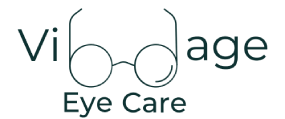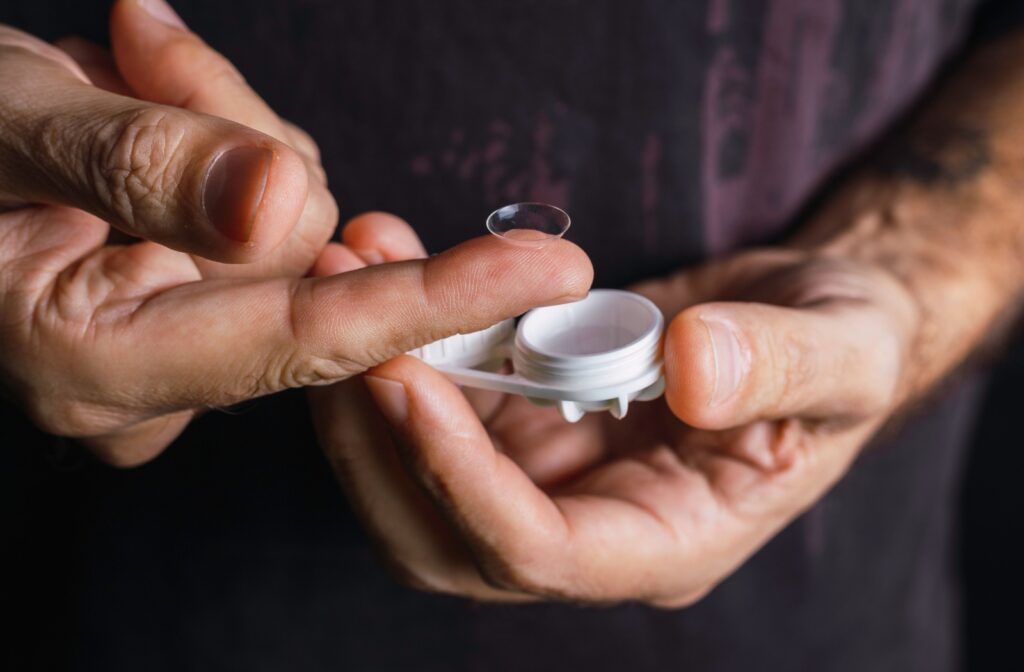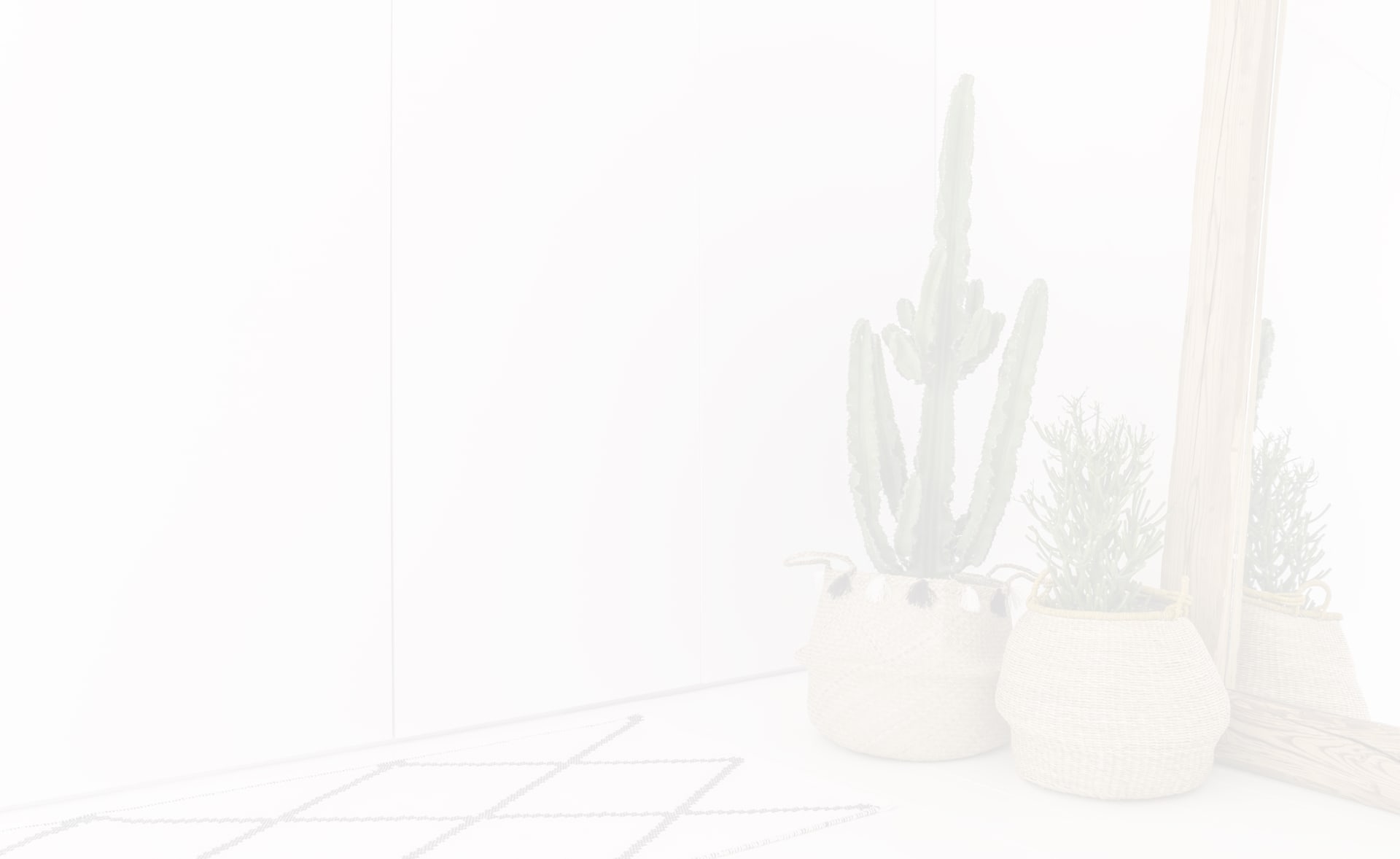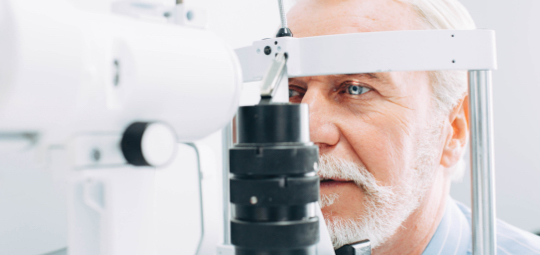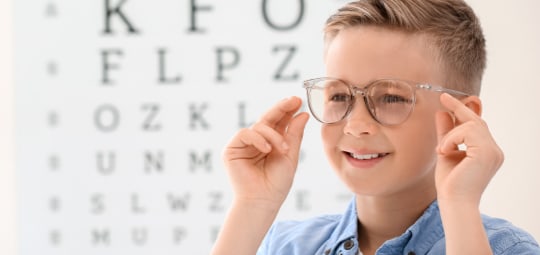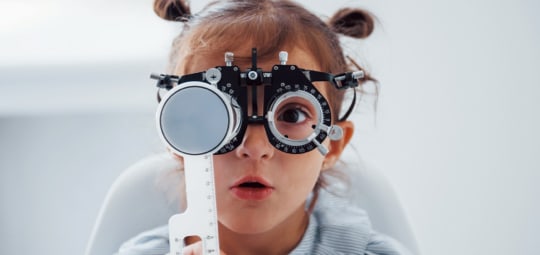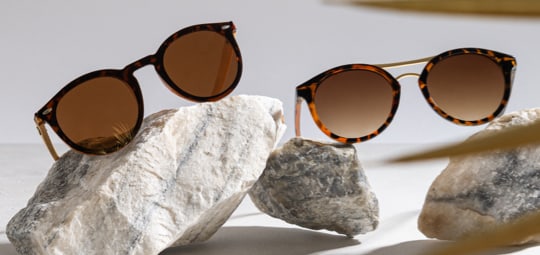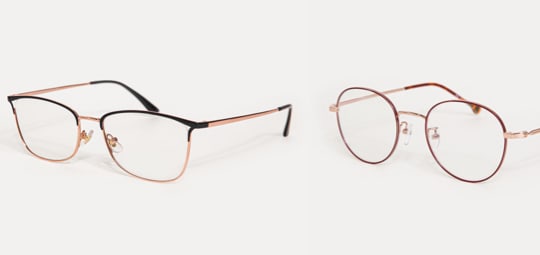Contact lenses are an alternative to eyeglasses that greatly benefit many people. However, wearing contacts can be detrimental when it comes time for an eye exam. For a routine comprehensive eye exam, taking your contact lenses out at least two hours before the exam is recommended.
However, if you’re seeing your optometrist specifically for a contact lens exam, you’ll want to wear your lenses so that they can assess if your contacts still fit and function how they’re meant to.
The Difference Between Comprehensive Eye Exams & Contact Lens Exams
While both kinds of exam are intended to help you maintain optimal eye health, the main difference between them lies in the additional steps taken during a contact lens exam. These extra steps ensure that your lenses fit properly and help correct your vision without causing discomfort or damage.
Comprehensive Eye Exams
A comprehensive eye exam is a thorough evaluation of your eyes and vision. It’s designed to check for common eye diseases, assess how your eyes work together, and evaluate your overall eye health. During this exam, your optometrist will perform a series of tests, including visual acuity, refraction, and eye pressure measurements. These tests help diagnose potential issues and prescribe corrective lenses if needed.
Contact Lens Exams
On the other hand, a contact lens exam is specifically tailored for those who wear or wish to wear contact lenses. This exam includes all the elements of a comprehensive eye exam, but also ensures that your contact lenses fit your eyes correctly. Your optometrist will measure the surface of your eye to determine the best type and size of contact lenses. They’ll also check how the lenses fit and move on your eyes, and how they affect your vision when worn.
Why Is It Important Not to Wear Contacts During a Comprehensive Eye Exam?
Most people don’t realize that eye exams are an excellent tool for assessing overall health. The inside of the eye can give early warning signs of more than 270 systemic and chronic diseases, including high blood pressure, cancer, autoimmune conditions, and diabetes. That’s why it’s so important that nothing interferes with your optometrist’s ability to peek into your eyes.
Moreover, having your eyes in their natural state for an eye exam allows for:
- Accurate Measurements. Wearing contacts during an eye exam can interfere with the accuracy of specific measurements. For example, the refraction test, which determines your exact prescription, requires a clear view of your eyes without obstructions. Contacts can slightly alter the shape of your cornea, leading to inaccurate results.
- Comfort and Safety. If you’re experiencing any discomfort or irritation from your contacts, removing them before your exam is essential. Your optometrist needs to see the natural state of your eyes in order to accurately diagnose issues. Wearing contacts when your eyes are irritated can exacerbate the problem and lead to further complications.
- Eye Health Assessment. During a comprehensive eye exam, your optometrist will check for signs of eye diseases like glaucoma, cataracts, and macular degeneration. Contacts can obstruct the view of your cornea and other parts of your eye, making it difficult for your optometrist to spot early signs of these conditions.
In addition to the above concerns, if you’re experiencing discomfort, redness, or infection, it’s best to avoid wearing contacts to your exam. You should inform your optometrist immediately.
When It’s Okay to Wear Contacts
Depending on your optometrist’s views, it can be acceptable to wear your contacts to the initial phase of your eye exam, especially if you’re going for a contact lens fitting or follow-up. Wearing contacts can help your optometrist assess how well your current lenses are working for you. Your optometrist can then check for any issues related to the fit or effectiveness of your lenses while they’re on your eyes.
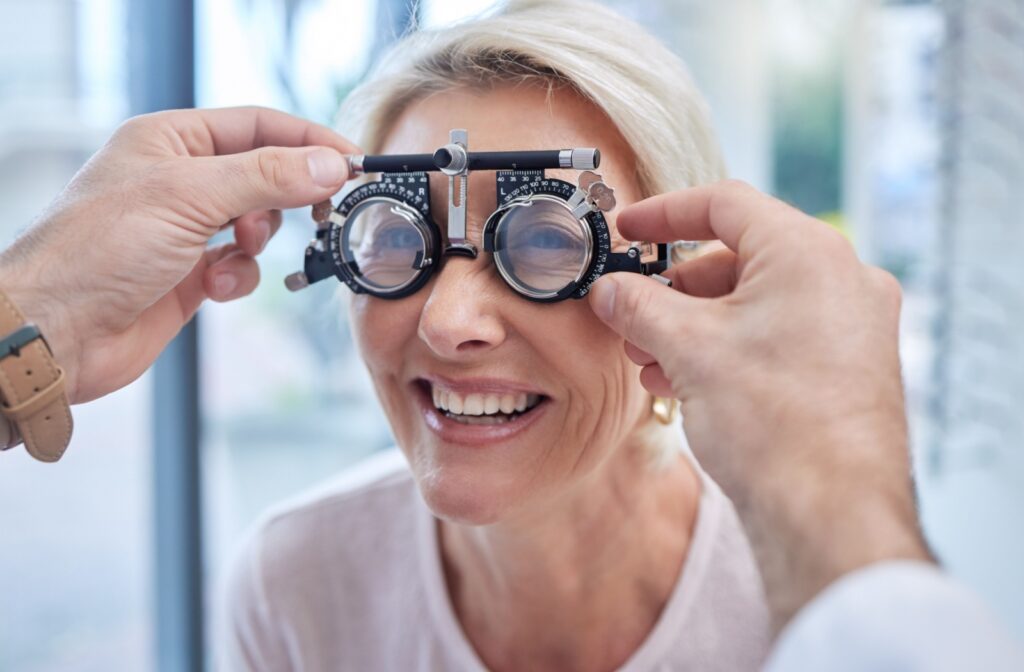
What About Wearing Eyeglasses During an Eye Exam?
Unlike contact lenses, wearing glasses to your eye exam is generally not an issue, though you’ll likely be asked to remove them for specific tests. It’s recommended that you bring your glasses along, even if you primarily wear contacts. Your optometrist can compare your current prescription with your glasses to see if any adjustments are needed.
Plus, bringing your glasses (and even contact lenses) to the exam allows your optometrist to check your current prescription against the new measurements. This comparison helps determine whether your prescription has changed and if a new one is necessary.
The Village Eye Care understands that remembering to take out your contacts for an eye exam can be difficult when you’re accustomed to wearing them every day. Contact us today to see how we can work with you on contact lens use while providing you with the eye care you need.
